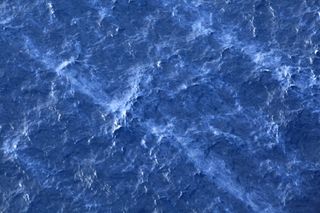
Have We Learned the Lessons from Deepwater Horizon? (Op-Ed)

Frances Beinecke is the president of NRDC, served on the National Commission on the BP Deepwater Horizon Oil Spill and Offshore Drilling, and holds a leadership role in several environmental organizations. This article is adapted from a recent post to Switchboard. She contributed this article to LiveScience's Expert Voices: Op-Ed & Insights.
A natural gas platform in the Gulf of Mexico blew out last Tuesday night, igniting a fire and forcing the evacuation of 44 workers. Fortunately no one was injured, but natural gas is leaking and a relief well may have to be drilled.
The images of smoke and flame billowing from an offshore drilling rig were hauntingly familiar. Three years ago, the Deepwater Horizon disaster showed the world just how deadly and destructive such explosions can be. The disaster also revealed the depth of industry recklessness and weak government oversight that have pervaded offshore drilling.
And now we watch another round of emergency workers try to contain another blowout. America should be doing everything we can to shift to cleaner energy resources and protect our workers, waters and wildlife.
Yet, more than three years after the BP disaster, we still have a long way to go in the Gulf.
When I served on the National Commission on the Deepwater Horizon Oil Spill and Offshore Drilling, my colleagues and I released a set of recommendations for how America could make offshore development safer for workers and the environment. Some progress has been made on putting those recommendations in action. But more needs to be done.
First, the industry itself needs to take the lead by forming an independent safety institute like the Institute for Nuclear Power Operations that was formed in the wake of the Three Mile Island disaster in 1979. The commission I served on recommended this step three years ago when we learned that, unlike the nuclear power or aviation sectors, the offshore oil and gas industry has no uniform operating protocols, allowing decisions on wells to be made in a hasty, ad hoc fashion — with potentially catastrophic results. The industry has since created a center for safety within the American Petroleum Institute, but to establish real credibility, the effort should be fully independent.
Sign up for the Live Science daily newsletter now
Get the world’s most fascinating discoveries delivered straight to your inbox.
Second, the federal government can further strengthen its standards, and NRDC looks forward to working with U.S. Department of the Interior Secretary Sally Jewell on critical safety and environmental recommendations.
To help prevent explosions on offshore rigs, for instance, the Department of the Interior should issue stronger standards for blowout preventers — a move the department has delayed until at least October 2014.
We should also require full environmental impact statements for lease sales and for sites with complex geology or ultra-deepwater frontier areas. All offshore-drilling assessments must be shaped by the best science, and we can elevate the role of scientific research by creating a distinct science division within the federal oversight structure and by increasing consultations with the National Oceanic and Atmospheric Administration.
But, even as we work to make offshore drilling safer, we have to recognize that certain areas — like the Arctic Ocean — pose special hazards and challenges that make them unfit for offshore oil and gas operations.
And, finally, we must reduce our reliance on oil and gas, over time, by investing in efficiency, wind, solar and other renewable sources of power. These are the solutions that will help turn blowouts into distant memories instead of recurring events.
Beinecke's most recent Op-Ed was Toxins in the Home: Why Aren't We Doing More?. This article first appeared as Latest Blowout in the Gulf Shows America Still Hasn't Learned Lessons of BP Disaster on the NRDC blog Switchboard. The views expressed are those of the author and do not necessarily reflect the views of the publisher. This article was originally published on LiveScience.com.
Most Popular



